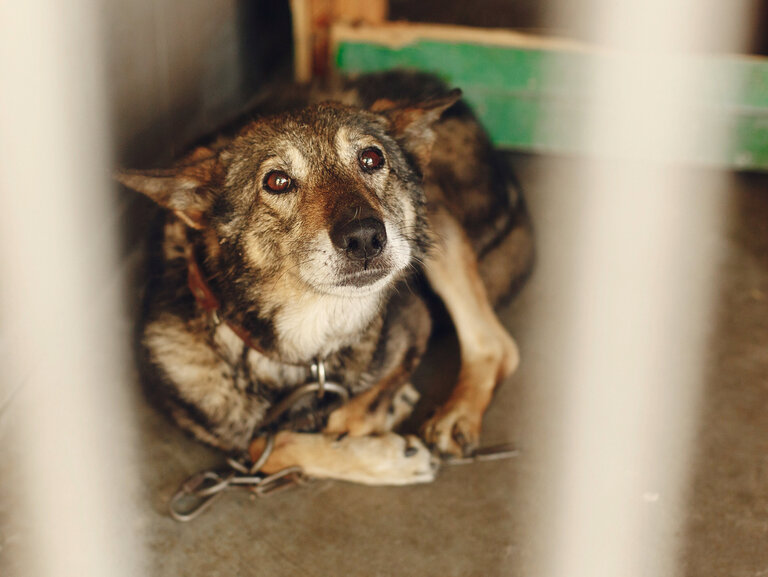In view of the outcry from dog breeders who are currently warning of the end of popular dog breeds due to the amendment of the Animal Welfare Act, the German Animal Welfare Federation makes it clear that the focus here should not be on human emotions or profit, but on the health of the animals. It is unacceptable that animals should continue to be bred in bodies in which they have to endure pain and suffering on the basis of tradition and the human ideal of the breed. The association welcomes the current draft of the new torture breeding paragraph in the Animal Welfare Act, but also criticizes the transitional periods of 15 years contained therein as being too long.
"The panic campaign by the German Kennel Club (VDH) is staggering. Sick animals are being glorified as a supposed cultural asset for reasons of backward-looking nostalgia," comments Lisa Hoth-Zimak, specialist for pets at the German Animal Welfare Federation. "The primary breeding goal for every dog breeder should be the physical and mental health of their animals. Instead of continuing to stir up fear that certain breeds may no longer exist in their current form in the future, breeding associations such as the VDH would do better to review their own breeding goals and standards. The fact that there is such fierce opposition to this innovation is more than revealing."
Dachshunds are not healthy dogs
Contrary to what the VDH claims, the Dachshund is not a healthy dog breed. The Dachshund's desired body shape is due to a congenital developmental disorder of the cartilage and bones - so-called osteochondrodysplasia. This disorder and the disproportion of long back and short legs leads to painful herniated discs with sometimes irreparable limb paralysis as well as urinary and defecation disorders - the so-called "dachshund paralysis". In the worst case, this can lead to the animal having to be put down. Dachshunds also have to contend with other hereditary diseases such as heart problems, allergies or endocrine disorders such as diabetes or hypothyroidism.
Concretization was overdue
A ban on torture breeding has been enshrined in the German Animal Welfare Act for more than 26 years. However, it has hardly been applied to date: Because the wording is too vague, action is taken against violations in individual cases at most - even if the health problems, such as with dachshunds, but also with many other breeds and animal species, have long been known. It remains to be seen how this will be implemented. There are still no specific breed bans in the new draft law. These would still have to be worked out in a regulation based on specific torture breeding characteristics. In addition, an import ban and a ban on keeping dogs with transitional regulations are still missing. The association criticizes the disproportionately long transitional periods of 15 years contained in the draft. "The aim here is to accommodate breeders," says Hoth-Zimak. "But there is no justification for accepting further suffering for thousands of animals for years."







